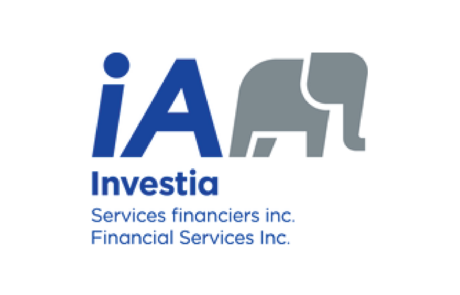Financial Planning
Financial planning creates strategies that will help you achieve your life goals, all of your life. Any financial strategy depends on your good health. At Finvest, we will offer you an insurance plan that will minimize the risks inherent in your future state of health and especially in the event of premature death.
As its name suggests, life insurance will pay a pre-determined amount to the beneficiaries named on the policy upon the death of the insured. There are different types of life insurance for different situations in life.
Term insurance : you can buy life insurance for 10 years, 20 years, up to 65 years depending on your goals. Cover a mortgage, secure a study fund for the children, protect the family lifestyle until the children have all left the "nest".
Permanent insurance : this insurance will remain in force until the death of the insured or the withdrawal from the policy. Here is an example of permanent insurance that aims to protect family assets: second death insurance. It is aimed at couples who want to cover inheritance taxes when the death of the spouse occurs survivant.
Universal life insurance : is a way to buy life insurance while accumulating tax-sheltered money. If you have an estate goal, the universal life policy is the best place to invest.
Participatory whole life insurance: provides permanent life insurance protection with a tax-efficient investment component that you can use during your lifetime for special projects.
Salary insurance provides you with income in the event of disability. If you pay the premiums, the amounts paid will not be taxable. Never forget that salary insurance is not calculated according to your lifestyle, but according to your salary. There are insurable maxima. Salary insurance can be short term or long term.
If your employer provides you with salary insurance, there are two questions you should ask yourself.
-
- Am I covered for both the short and the long term?
-
- When I leave this employer, will the next one offer me salary insurance? If not, will my health allow me to purchase one individually from an insurer?
- 75% of disability cases are related to illness rather than injury, and statistics show that a third of people aged 30 to 64 are disabled at least once during their working life at work. There is a very simple question as to whether you need disability insurance. Can you afford not to receive any income for 6 months or more?
The Canadian Cancer Society recently disclosed that nearly 500 Canadians are diagnosed with cancer every day. In fact, this means that 40% of women and 45% of men will have this disease in their lifetime. Likewise, according to the Heart and Stroke Foundation, every year in Canada there are about 50,000 strokes, 70,000 heart attacks.
- If you are diagnosed with a critical illness covered in your plan, you will receive, thirty days later, the insured amount, tax-free. And whether you are disabled or not.
You can take out a temporary, long-term policy that can be converted into long-term care insurance, with an amount in the event of death or for a child.
The children's critical illness insurance policy covers not only adult illnesses, but also illnesses specific to children such as type 1 diabetes mellitus, congenital heart disease, to name a few. At 18, the child can convert it to adult insurance and / or recover the premiums paid. This type of insurance is a great savings vehicle for education.
Finally, critical illness insurance can include a premium clawback clause at the end of the term.
There are two components to mortgage insurance: disability insurance and life insurance.
Disability insurance make your mortgage payments in the event of disability. You can thus insure all your debt payments: auto, credit cards, personal loans.
Life insurance mortgage will settle the balance of your mortgage if you die prematurely. There are many differences between mortgage life insurance taken out with the lending institution rather than with an insurance company.
With an insurance company, the premium is fixed. With a bank or a caisse, it increases with age. If you change the lending institution, you lose your insurance. With an insurance company, you keep it. This simple element seems banal. But think about your insurability, which depends on your state of health. With an insurance company, the death benefit can be fixed or decrease by up to 50%. With a bank or a caisse, it decreases to zero.
Many Canadians believe that full-time care received in a long-term care facility is fully covered by government health care programs. This is not the case; long-term care is not all covered by the public health system.
- Government programs cover only a small portion (and in some cases none at all) of the costs associated with care received in nursing homes or other specialized homes. In other words, it will be the people (or their families) who will bear much of the cost of long-term care out of their own pockets.
This insurance protects you financially if you become unable to take care of yourself due to a chronic illness, disability, cognitive impairment, such as dementia, or any other age-related condition. preventing certain everyday activities from being performed without assistance. It can cover stays in nursing homes and establishments for chronically ill patients, or even home care.
Everyone knows the importance of purchasing travel insurance when going on vacation abroad. But did you know that Quebec health insurance does not necessarily cover all of your hospital costs in other provinces.
You have a boat on Lake Champlain, you regularly visit your son who lives in Toronto or Vancouver, we have travel insurance programs that cover these situations.
Are you sure you are covered based on your pre-existing conditions?
Insurance products are offered through several general agents. Finvest distributes the insurance products of several insurance companies.
Guaranteed investments are offered through Investia Financial Services Inc. and / or several general agents.
Segregated fund products are offered through Investia Financial Services Inc. and / or several general agents. Subject to any guarantee applicable to the death benefit, any part of the premium, or any other sum allocated to a segregated fund, is invested at the risk of the policy holder and its value may increase or decrease according to fluctuations in value. market of the assets of the segregated fund.




Médias sociaux